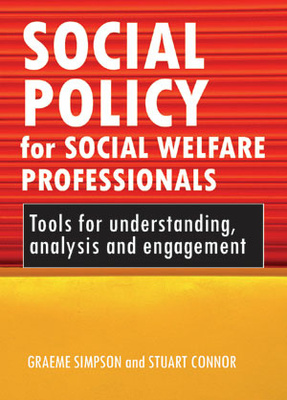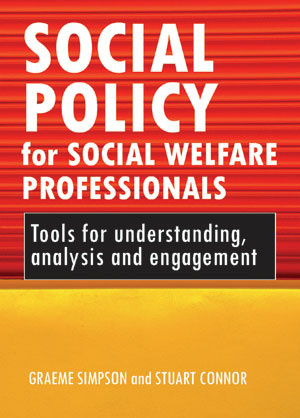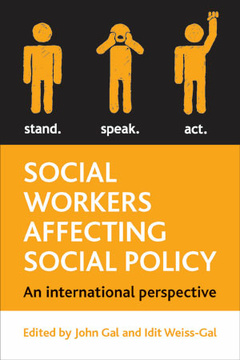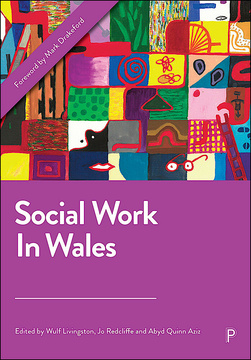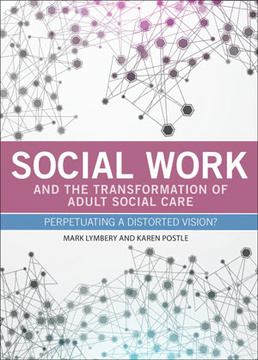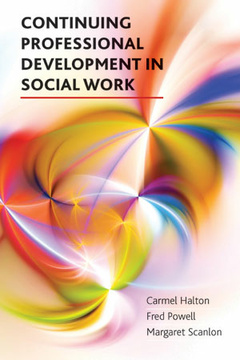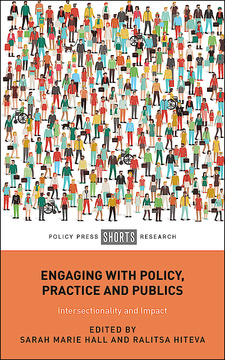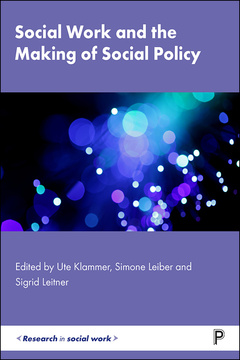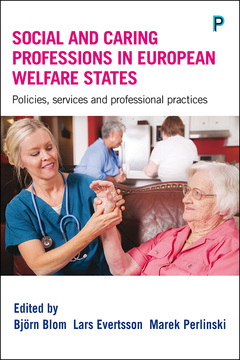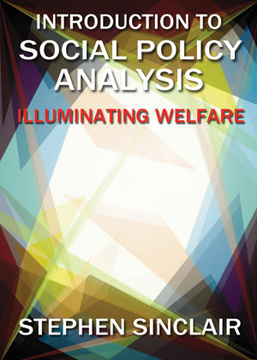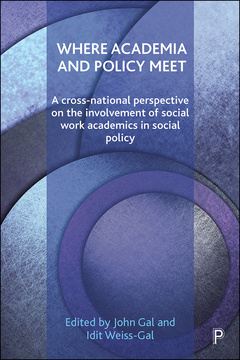Social policy for social welfare professionals
Tools for understanding, analysis and engagement
By Graeme Simpson and Stuart Connor
Published
Apr 27, 2011Page count
224 pagesISBN
978-1847422651Dimensions
240 x 172 mmImprint
Policy PressPublished
Apr 27, 2011Page count
208 pagesISBN
978-1847429131Dimensions
240 x 172 mmImprint
Policy PressSocial welfare workers are frequently motivated by a desire to 'work with people', to 'bring about change' or to 'make a difference'. This valuable book explores some of the difficulties and dilemmas faced by those who deliver welfare in a changing policy context.
This book seeks to develop an analytical skills-based approach to understanding the role and importance of social policy in social welfare practice, and will encourage and enable readers to understand, analyse and engage with policy. It will be of great value to students of social work and other welfare professions, and their teachers.
"This text should be recommended as 'core reading' on any reading
list where policy studies are in the curriculum..." British Journal of
Social Work
"The approaches of the Coalition government are likely to highlight the centrality of welfare professionals in social policy. This timely book will be valuable for those seeking to understand and enhance this role." Hugh Bochel, Dept of Policy Studies, University of Lincoln
Graeme Simpson is a senior lecturer in social work at the University of Wolverhampton.
Stuart Connor is a lecturer in social policy at the University of Birmingham.
Introduction: The ideas behind the book; From the care of the poor to service users: experts by experience; From caseworkers to networks: partnership and collaboration; From state-led provision to 'choice'; The mixed economy of welfare and political priorities; Social inequalities and the welfare professional; The decline of the 'union' and the rise of the 'manager'; Economic theories; Globalisation; Political choices; Engaging in policy-orientated practice; Using skills to understand the policy stereotypes; Reclaiming a radical agenda.







